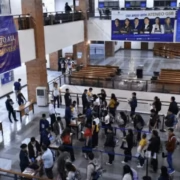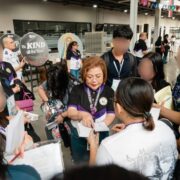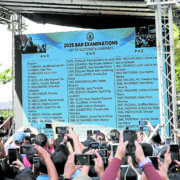Student internship program

By this time, graduating students of colleges and universities in the Philippines that have student internship programs (SIP) are being given a feel on how things may work in their possible future field of work.
Aside from being a prerequisite for graduation, it would be a welcome break from the tedium of classroom activities and homework. Under the guidelines laid down by the Commission on Higher Education, the SIP should, among others, provide students in host training establishments (HTE) “… with opportunities to apply relevant knowledge and skills acquired from formal education to actual work setting to be provided by reputable HTEs in our country.”
The HTEs are private companies with established systems of training, and duly recognized government and nongovernment institutions, e.g., civil society organizations that promote and provide students with competitive skills and attitudes for employment.
The competition for limited slots in prestigious HTEs could sometimes be intense so some parents of interns are not averse to using their social, business and political connections to get their way.
Depending on the school’s program, the SIP is also described as practicum, field practice or on-the-job training. But it is not meant to be run as an apprenticeship or learnership program under the Labor Code whose objectives are different from those of the SIP.
Incidentally, the SIP is not permitted for companies engaged in health- or medicine-related activities, such as nursing, optometry, pharmacy and midwifery, because they involve the health or safety of third parties.
Upon successful completion of the program, which should be not more than five months, the student would (hopefully) have learned some skills, aside from the technical aspect, in communication, financial literacy and interpersonal relations.
With this objective in mind, the interns should therefore not be made to do “housekeeping” chores, such as serve coffee to office visitors, run personal errands for the staff or act as babysitter for employees who bring their children to the office. In other words, they should be accorded some degree of professional respect.
Although HTEs are not obliged to pay the interns for doing their assigned tasks, some private establishments give them a small allowance or meal tickets if they have a canteen in their premises.
For some HTEs, aside from the availability of extra hands at no extra cost, the program gives them the opportunity to have the first crack at interns who show potential to be efficient employees. And the interns would only be too happy for that employment opportunity after their graduation because it would spare them from the rigors of job hunting without any assurance of success.
Thus, it is heartening that, as earlier reported by the Inquirer, professional service firm PwC Philippines/Isla Lipana & Co. launched last month an internship program at the Polytechnic University of the Philippines for students from various fields, including accountancy, engineering, computer science and business.
The program aims to foster an environment where students can put conceptual or academic knowledge into practice in the workplace.
What makes this program more meaningful is that students would be paid on an hourly basis in accordance with industry standards and the requirements of the Department of Labor and Employment.
In effect, the interns would be earning something at the same time that they’re being trained to learn how to meet the challenges of their chosen field of work in the future.
Hopefully, other private companies, in particular those that have some money to spare, can do something similar or even better.
It would be a meaningful gesture of corporate social responsibility or paying forward the blessings of a profitable business operation.


















